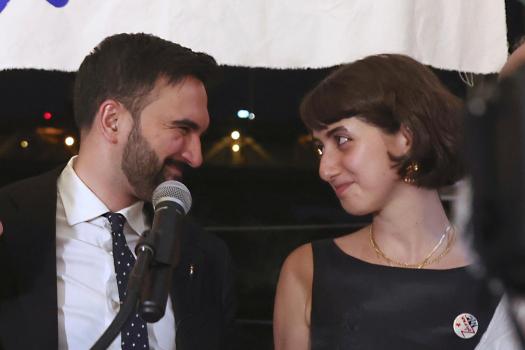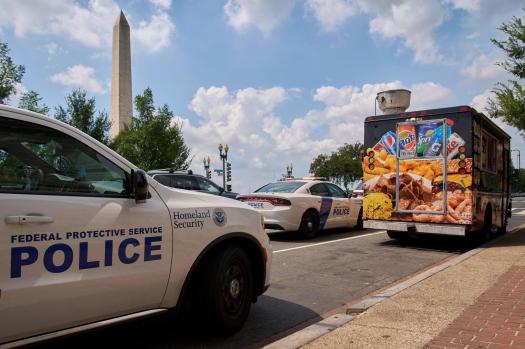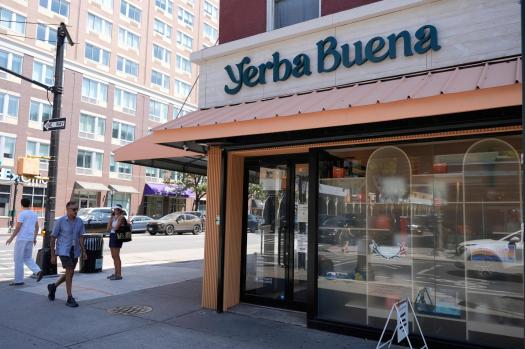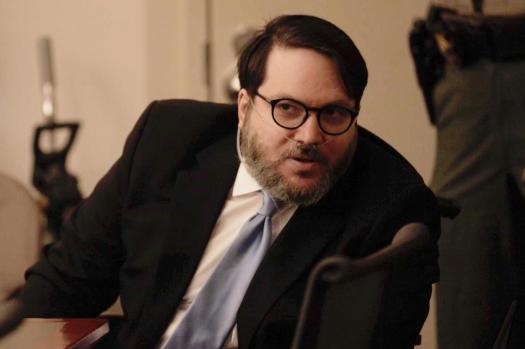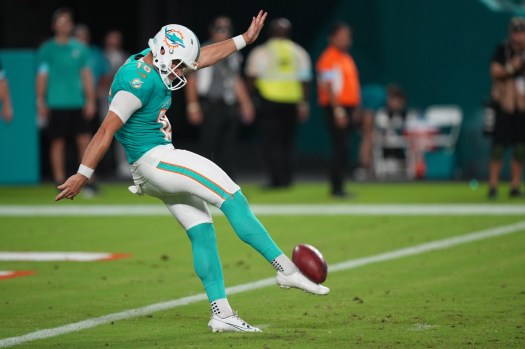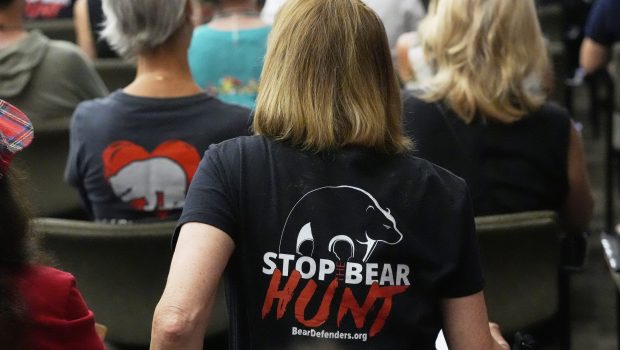By the Mariana Family
Nura Maznavi was thrilled to hear that Zohran Mamdani, a Muslim candidate for mayor of New York City, found his wife on Hinge.
Related Articles
-
Kohberger s sexist, creepy behavior alarmed university faculty and students before Idaho murders
-
Air Force s top uniformed officer is retiring early in latest Trump military shake-up
-
Oklahoma ideology test for teachers from New York and California draws criticism
-
Years after abuse reports, ex-coach at renowned US gymnastics academy is arrested by FBI
-
US pediatricians new COVID-19 shot recommendations differ from CDC advice
Maznavi, who met her own husband online over 14 years ago before dating apps like Hinge were commonplace, laughed when she remarked, “It made me feel like less of a loser.”
Regarding Mamdani, she stated, “He’s so cool.” He’s so New York trendy, as is his wife.
From the traditional to the modern, Mamdani’s success on Hinge and the Hulu program Muslim Matchmaker offer an insight into some of the ways American Muslims find their spouses. Many people balance their beliefs, degrees of piety, varied lifestyles, and a variety of cultural influences while they pursue love and marriage.
Yasmin Elhady, one of two matchmakers on the Hulu reality series, stated, “We just wanted a realistic assessment of what’s going on in the love space for Muslim Americans and that we do have unique challenges but also have very universal challenges.” Our manifestations are complex, lively, and dynamic.
Maznavi, a self-confessed romantic, co-edited two collections of American Muslim writers’ works about relationships and love. She discovered that people met through work, college, friends, family, and even kind of random encounters.
Maznavi, a writer, lawyer, and daughter of Sri Lankan immigrants, met people through her parents, friends, and extended family back when she was the one searching.
When she lived in San Francisco, she discovered that there weren’t many Muslims there. After hearing an advertisement on Match.com, her mother advised her to give it a try.
Maznavi stated, “I still resisted.” She finally gave up and met her hubby there.
Hoda Abrahim, the show’s other matchmaker, stated that the majority of Muslims looking for Muslims are rather dispersed and hard to find. You won’t go to the gym and be surrounded by folks you might end up marrying.
According to her, that might require attempting a long-distance relationship. She claimed that a large number of her clients already used dating applications tailored to Muslims.
For Muslim singles looking for marriage, there are also certain in-person events.
The matchmakers in the episode describe their Rules of Within three months, there will be three sessions and 300 compatibility questions to complete. Their matched clients go through the nerves of a first encounter, the pain of rejection or the warmth of a connection, and the ambiguity in between.
The matchmakers take into account what they refer to as the halal-haram ratio—the degree of religious observance and how well a couple’s lifestyles would mesh—when determining a couple’s compatibility.
According to one participant, she makes an effort to offer the mandatory daily prayers, but she doesn’t dress very modestly. She is looking for someone who is open to the idea of her faith developing and who enjoys life while adhering to Islamic principles and attempting to strike a healthy balance between them. She enjoys concerts and nice banter as well. Not so much about hairy dudes.
Another participant states that he is looking for a companion who possesses Islamic traits and is not particularly interested in whether or not she dons the headscarf.
Even if they are not active, devout Muslims, many Muslims will have strong feelings regarding the following: Perhaps it’s a Ramadan custom. Perhaps it’s because they avoid pork. Elhady said that it might be the attire. Islam has a very important lifestyle choice, and I believe that when you get married, you’re seeking for someone who shares your sense of style.
60% of Muslim individuals in the United States stated that religion played a significant role in their life, per a Pew Research Center research conducted in 2023–2024. That’s quite similar to what 55% of American Christians stated in the survey.
According to Abraham, some internet users disapproved of the term “halal-haram ratio,” believing it to normalize actions that are forbidden by religion. She retaliates. We’re not making it commonplace. We’re only stating that people practice to a certain extent.
Next is the controversy over the term “getting to know the other person”: Is it romantic? Courtship?
“We talked about this a lot,” Abraham stated. When I say dating, I mean courting, and we made it clear on the show that we are serious and purposeful.
Elhady stated that the show had a lot of favorable feedback, but that some Muslims disliked the term “dating.” Make your own definition, or call it whatever you want, she responds. (The phrase “halal dating” is used by some.)
According to them, dating is a term coined by non-Muslims for non-Muslims and denotes a sexual relationship before marriage, she claimed. Premarital sex is not portrayed in the show. It shows people looking for love.
Kaiser Aslam, a Muslim chaplain at Rutgers University’s Center for Islamic Life, is frequently asked by some of the students he works with the following questions: How can one determine compatibility? And how do you get to know them without being close?
“Getting intimate and sexually intimate before marriage is forbidden in Islamic tradition,” he stated.
He advises holding serious talks with accountability mechanisms in place, such as chaperones, meeting in a public venue, and making it obvious that your goal is to understand one another rather than to engage in close contact or intimacy. Additionally, he mentioned speaking with the individual’s family and friends.
The racial and ethnic diversity of Muslim Americans is enormous.
It is lovely and wonderful to witness young Muslims repeatedly seeing people from many cultural backgrounds, Aslam added.
Cultural differences may be the source of arguments such as “No, we do marriage this way.” No, this is traditionally covered by the man side. According to Aslam, who has performed numerous marriages and offered prenuptial counseling, the girl side foots the bill.
According to him, some parents are against their kids being married to someone from other cultures.
He said, “We have to call it out for what it is.” He acknowledged that there may occasionally be racist undertones. In all respects, it is not religious. According to him, theologically, we are urged to ensure that the most varied, moral traditions may communicate with one another.
At other times, he added, parents need reassurance because they think their kids might be fleeing their culture.
Knowing that some possible matches wanted to marry inside their own culture and ethnicity, Tahirah Nailah Dean, who is Black and Latina, said she had run upon these obstacles during her quest. Some of her worries are also in line with more general inquiries and discussions about racial bias and preference in dating that are not exclusive to Muslim groups.
Dean, a lawyer who also writes on Muslim marriage and love, married at age 30 and then got divorced.
She used the apps while in her twenties, but she found it extremely taxing to deal with things like ghosting and love bombing. In addition to getting to know people through volunteer work at the mosque, she also tried matchmaking through the mosque and matchmaking aunties. In addition, she had requested friends to introduce her.
She has recently returned to the search.
People want to truly fall in love, but it’s difficult to do so in the contemporary era, Elhady of the Muslim Matchmaker show claimed, whether or not they are Muslims.
Lilly Endowment Inc. provides financing for the Associated Press’s partnership with The Conversation US, which supports its coverage of religion. This content is entirely the responsibility of the AP.
